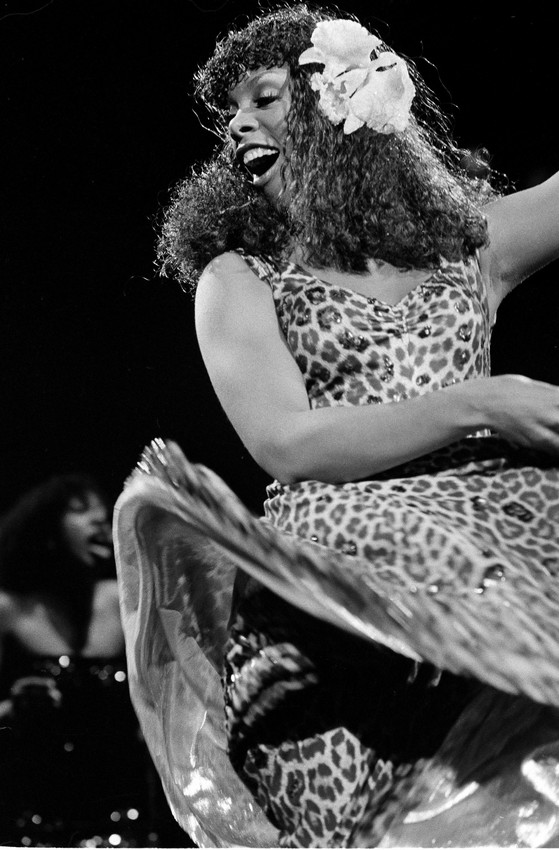Donna Summer: 1949—2012
By Jim DeRogatis

Donna Summer: 1949—2012
By Jim DeRogatis
Born on New Year’s Eve, 1948-1949, and one of seven children raised in a devout Christian home in the Dorchester section of Boston, LaDonna Adrian Gaines would see three consecutive double albums reach No. 1 on the Billboard albums chart, score four No. 1 singles in a little more than a year, win five Grammys and epitomize the disco era for millions of fans.
All of those music-industry accomplishments and many more are certain to be repeated in the obituaries and tributes that will flood the media in coming days. But this blog prefers to pay homage by remembering her very real and enduring contributions to the development of electronic dance music, perhaps best encapsulated by her timeless 1975 hit “Love to Love You Baby” and 1977’s “I Feel Love.”
Developed in the gay dance clubs of Manhattan and Fire Island, America’s take on disco started creeping into the pop mainstream as early as 1974, but it was Summer and “Love to Love You Baby” that really put it on the map—for better, as musical history has shown, or worse, as evidenced by notorious knee-jerk reactions such as Chicago’s arguably racist and homophobic “Disco Demolition.”
After honing her remarkable mezzo-soprano in the gospel church, Summer made her way to Munich in the early ’70s via a touring production of the hippie musical Hair. There she linked up with producers and songwriters Giorgio Moroder and Pete Bellotte, pioneers in the use of analog synthesizers and pulsating drum machines. This team had crafted a bubbly, lighthearted electronic backing track as a demo, and Summer was invited to improvise the minimal lyrics and orgasmic moans of what would become “Love to Love You Baby” while lying in the dark on the studio floor, the same way that John Lennon recorded the Beatles’ “Tomorrow Never Knows.”
The song was a strange but wonderful novelty, the sound of a woman making love to a machine, but Summer’s next hit was even better. “I Feel Love” almost beats the enormously influential German group Kraftwerk at its own game, with a phased production that gets trippier the louder it’s played, and vocals that seem to come from another dimension. As unapologetic celebrations of unfettered hedonism go, no one has ever topped it, and the careers of artists such as Madonna and Lady Gaga are unimaginable without it.
Also unimaginable without Summer’s best sounds is the house music of the ’80s—in particular the strain perfected in Chicago, with its merger of gospel soul and mechanic precision—as well as the acid house and techno of the ’90s and much of the electronic dance music that is becoming a stadium draw worldwide today.
While many continue to argue that the singer simply was the most successful beneficiary of a passing fad, best consigned to the resale shops with all of those leisure suits and platform shoes, echoes of Summer’s music reverberate everywhere today, and this is the artist we should remember and celebrate.
Sound Opinions will pay homage to Donna Summer next week with a tribute and a reprise of our special on disco.
